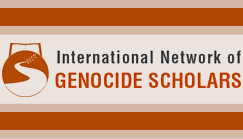Event Title
Transdisciplinary Frames for Working with Groups in Conflict: Trauma, Memory, Empathy, Reconciliation
Submission Type
Paper
Abstract
Grounded in facilitating encounters with groups in conflict, Krondorfer suggests that “unsettling empathy” is key to understanding the dynamics of conflicts and moving beyond them. Empathy is our imaginative ability to understand the experience of someone other than ourselves by entering into a relational process that is both affective and cognitive. As such, it can “unsettle” people’s foundational assumptions about the world, compelling them to validate the existence of the other as the other is, and not as we wish them to be. Probing the value of four transdisciplinary frames (reconciliation, memory, trauma, and empathy), the talk offers select thick descriptions of situations drawn from decades of facilitating intergroup encounters. The talk draws on materials specific to the Israeli-Palestinian conflict but also includes interreligious encounters, workshops on ethnic differences and racial tensions, approaches to family histories in conflict settings, and a cultural encounter program for Israeli/Bedouin and American/Native American participants.

Transdisciplinary Frames for Working with Groups in Conflict: Trauma, Memory, Empathy, Reconciliation
Grounded in facilitating encounters with groups in conflict, Krondorfer suggests that “unsettling empathy” is key to understanding the dynamics of conflicts and moving beyond them. Empathy is our imaginative ability to understand the experience of someone other than ourselves by entering into a relational process that is both affective and cognitive. As such, it can “unsettle” people’s foundational assumptions about the world, compelling them to validate the existence of the other as the other is, and not as we wish them to be. Probing the value of four transdisciplinary frames (reconciliation, memory, trauma, and empathy), the talk offers select thick descriptions of situations drawn from decades of facilitating intergroup encounters. The talk draws on materials specific to the Israeli-Palestinian conflict but also includes interreligious encounters, workshops on ethnic differences and racial tensions, approaches to family histories in conflict settings, and a cultural encounter program for Israeli/Bedouin and American/Native American participants.





Comments
View the agenda item.
View Bjorn Krondorfer's bio.